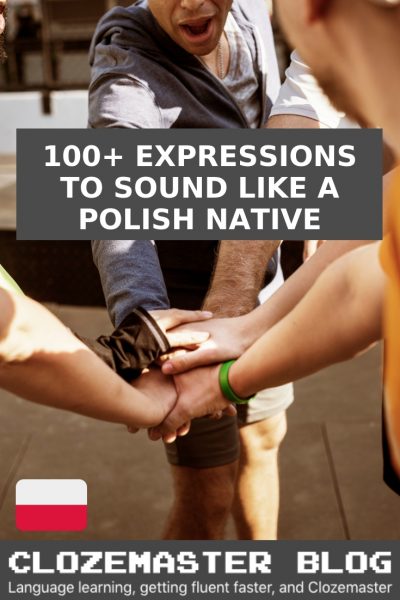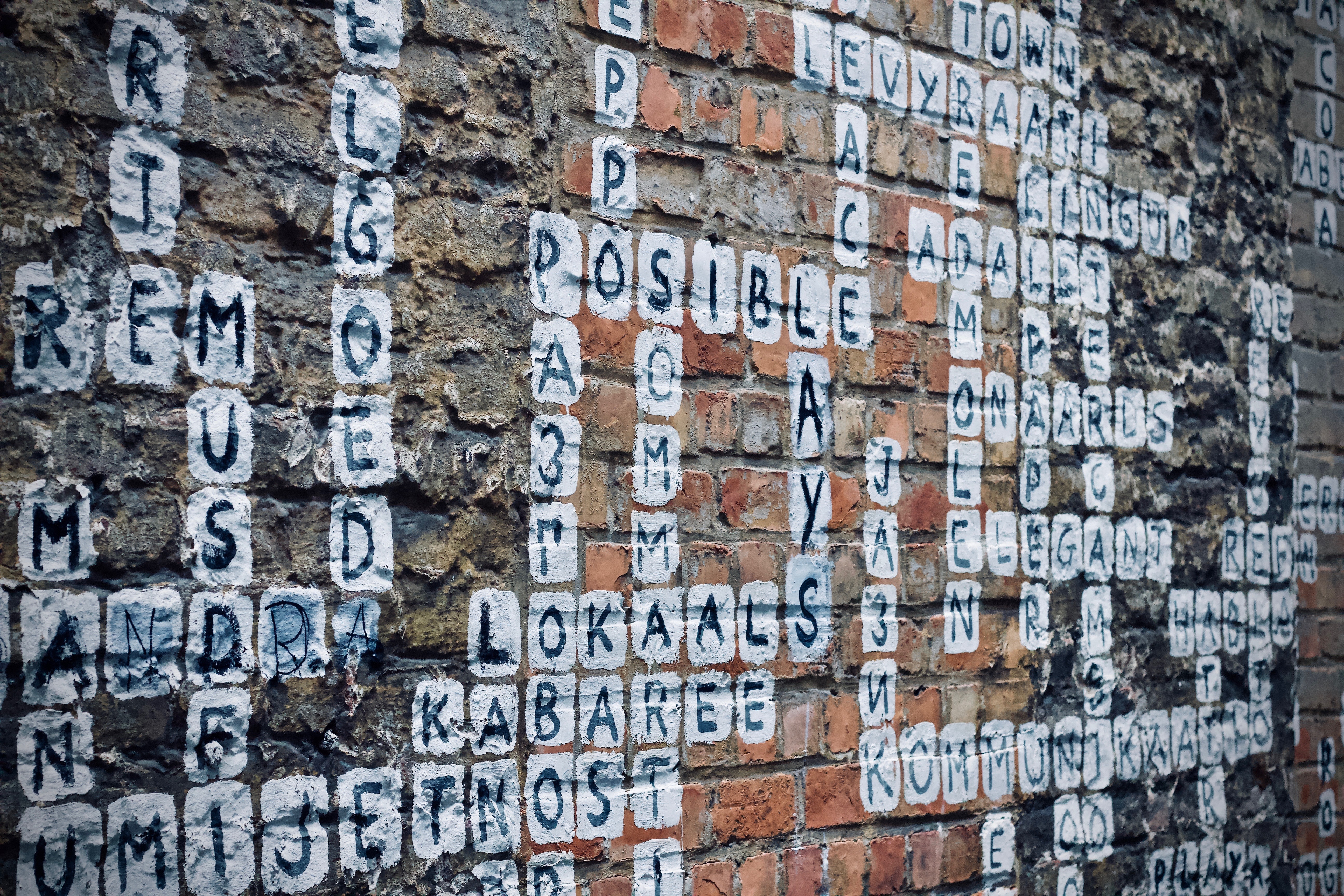Though the Polish language is rich in long words and complex grammatical structures, everyday Polish is mostly made up of a limited set of essential phrases and expressions that repeat from conversation to conversation.
If you want to sound more natural when speaking Polish, the most time-efficient thing you can do is work on the fixed expressions that Poles use whenever they greet each other, ask for clarification, express opinions or simply do their best to sound polite.
The basic premise behind this little compendium is to only cover these Polish phrases that are both common and useful across multiple contexts.
Whether you’re an absolute beginner who needs to quickly memorize basic Polish phrases before a trip to Poland or a more advanced learner who wants to impress Poles with a perfect command of everyday idioms, this guide will show you what you need to focus on.
And if you think you’ve already learnt all there is to learn, challenge yourself and test your skills in our interactive Clozemaster quiz at the bottom of the article, which includes most of the Polish phrases listed in this article.
Complete guides to essential Polish expressions
“Hello” in Polish: 7 Polish Greetings to Sound like a Native Speaker
TL;DR
|
“How Are You?” in Polish: 6 Friendly Polish Phrases and When to Use Them
TL;DR
|
How to Introduce Yourself in Polish: All You Need to Know
TL;DR
|
Saying “Goodbye” in Polish: 7 Essential Polish Farewells
TL;DR
|
Saying “Thank You” in Polish: 7 Key Phrases
TL;DR
|
How to Say “Sorry” in Polish to Sound Like a (Polite) Native Speaker
TL;DR
|
Basic Polish phrasebook: the most useful phrases in Polish
| In blue: male forms In green: female forms In red: plural forms In italics: formal forms |
Asking questions in Polish
| What is it? | Co to jest? |
| Who is it? | Kto to jest? |
| Is this … ? | Czy to jest … ? |
| Is there (any) … ? | Czy jest … ? |
| Why … ? | Czemu … ? / Dlaczego … ? |
| When … ? | Kiedy … ? |
| What is going on? | Co się dzieje? |
| What happened? | Co się stało? |
Answering questions in Polish
| Yes. | Tak. |
| Yes, please. | Tak, poproszę. |
| No. | Nie. |
| No, thanks. | Nie, dziękuję. |
| Fine. | Dobrze. |
| Okay. | Okej. |
| Maybe. | Może. |
| I don’t know. | Nie wiem. |
| Of course. | Oczywiście. |
| Great! | Świetnie! |
Making requests and asking for help in Polish
| I want…
1. to book a room. |
Chcę…
1. zarezerwować pokój. |
| I need…
1. a toothbrush. |
Potrzebuję…
1. szczoteczki do zębów. |
| I have to…
1. take a shower. |
Muszę…
1. wziąć prysznic. |
| I’m looking for…
1. an L size sweater. |
Szukam…
1. swetra w rozmiarze L. |
| I would like…
1. to buy something to drink. |
[Chciałbym… / Chciałabym]…
1. kupić coś do picia. |
| Please give me…
1. a ticket to Berlin. |
Poproszę…
1. bilet do Berlina. |
| Can I…
1. sit here? |
Czy mogę…
1. tu usiąść? |
| Do you have…
1. a bandage? |
Czy [ma pan / ma pani / mają państwo / masz / macie]… 1. bandaż? |
| Can you help me? | Czy [może pan / może pani / mogą państwo / możesz / możecie] mi pomóc? |
| Help! | Pomocy! |
| (Please) wait. | Zaczekaj. / Proszę poczekać. |
Expressing opinion in Polish
| I (don’t) like… (= I find it nice/attractive) | (Nie) podoba mi się… |
| I (don’t) like… (= I enjoy it) | (Nie) lubię… |
| I think that… | Myślę, że… |
| It seems to me that… | Wydaje mi się, że… |
| I am glad that… | Cieszę się, że… |
Talking about health and mood in Polish
| I’m not feeling well. | Źle się czuję. |
| I’m feeling nauseous. | Niedobrze mi. |
| I’m feeling dizzy. | Kręci mi się w głowie. |
| I’m sick. | Jestem [chory / chora]. |
| I’m tired. | Jestem [zmęczony / zmęczona]. |
| I’m sleepy. | Chce mi się spać. |
| I’m bored. | Nudzi mi się. |
| I’m sad. | Smutno mi. |
| My…
1. head …hurts. |
Boli mnie…
1. głowa. |
| Call an ambulance! | Proszę wezwać pogotowie! |
Talking about money and prices in Polish
| How much is it? | Ile to kosztuje? |
| How much is…
1. the entrance fee? |
Ile kosztuje…
1. wstęp? |
| Where can I change money? | Gdzie mogę wymienić pieniądze? |
| I’d like to change euro into zlotys. | Chcę wymienić euro na złotówki. |
| Do you take credit cards? | Czy mogę zapłacić kartą (kredytową)? |
Asking about the time in Polish
| What time is it? | Która jest godzina? |
| At what time…
1. does the train to Kraków leave? |
O której (godzinie)…
1. odjeżdża pociąg do Krakowa? |
Asking for directions in Polish
| Where is the…
1. toilet? |
Gdzie jest…
1.toaleta? |
| Where can I…
1. rent a car? |
Gdzie mogę…
1. wynająć samochód? |
| Is there (any) … nearby? | Czy w pobliżu jest …? |
| How do I get to…? | Jak dostać się do…? |
| Go straight ahead. | Idź prosto. / Proszę iść prosto. |
| Turn right. | Skręć w prawo. / Proszę skręcić w prawo. |
| Turn left. | Skręć w lewo. / Proszę skręcić w lewo. |
| Is it far from here? | Czy to daleko stąd? |
| Please take me to… | Proszę mnie zawieźć do… |
| Where does this bus/train go? | Dokąd jedzie ten autobus/pociąg? |
| I’m lost. | [Zgubiłem / Zgubiłam] się. |
Talking about language in Polish
| Do you speak…
1. English? |
Czy [mówi pan / mówi pani / mówią państwo / mówisz / mówicie] po…
1. angielsku? |
| I (don’t) speak Polish. | (Nie) mówię po polsku. |
| My Polish is poor. | Słabo mówię po polsku. |
| Can you say that again? | Czy [może pan / może pani / mogą państwo / możesz / możecie] to powtórzyć? |
| Can you speak slower? | Czy [może pan / może pani / mogą państwo / możesz / możecie] mówić wolniej? |
| Can I get that in English? | Czy dostanę to po angielsku? |
| Does anyone here speak English? | Czy ktoś tu mówi po angielsku? |
| How is this called in Polish? | Jak to się nazywa po polsku? |
| How do I say … in Polish? | Jak się po polsku mówi …? |
| What does it mean? | Co to znaczy? |
| How do you pronounce it? | Jak się to wymawia? |
| How do you spell it? | Jak się to pisze? |
Talking about food in Polish
| Can I see the menu? | Czy mogę zobaczyć menu? |
| Can I get something to…
1. eat? |
Czy mogę dostać coś do…
1. jedzenia? |
| Can you recommend anything? | Czy [może pan / może pani / mogą państwo / możesz / możecie] coś polecić? |
| Does this dish contain…
1. nuts? |
Czy to danie zawiera…
1. orzechy? |
| I feel like having…
1. something sweet. |
Mam ochotę na…
1. coś słodkiego. |
| I am vegetarian. | Jestem [wegetarianinem / wegetarianką]. |
| I am vegan. | Jestem [weganinem / weganką]. |
| I am (not) hungry. | (Nie) jestem [głodny / głodna]. |
|
Bon appétit! (= enjoy your meal) |
Smacznego! |
|
I (don’t) like it. (about taste) |
(Nie) smakuje mi. |
|
It’s delicious! |
Pyszne! |
| May I have the bill, please? | Czy mogę prosić o rachunek? |
Holiday greetings and good wishes in Polish
| Good luck! | Powodzenia! |
| Congratulations! | Gratulacje! |
| Same to you! | Nawzajem! |
| All the best! / Happy birthday! | Wszystkiego najlepszego! |
| Merry Christmas! / Happy Easter! | Wesołych Świąt! |
| Happy New Year! | Szczęśliwego Nowego Roku! |
If you’d like to see a list of recommended phrasebooks and tons of other resources that will get you all the way to fluency in Polish, check out The Best Resources for Learning Polish.
Challenge yourself with Clozemaster
Test your skills and see what you’ve learned from this article by playing a selection of 101 common Polish expressions.
Sign up here to save your progress and start getting fluent with thousands of Polish sentences at Clozemaster.
Clozemaster has been designed to help you learn the language in context by filling in the gaps in authentic sentences. With features such as Grammar Challenges, Cloze-Listening, and Cloze-Reading, the app will let you emphasize all the competencies necessary to become fluent in Polish.
Take your Polish to the next level. Click here to start practicing with real Polish sentences!




Thanks, great for beginners and good revision for more experienced learners.
I’ve sometimes wondered …. Is ‘smacznego’ (enjoy your meal), a shortened version of a longer phrase? (I’m curious about the -ego ending on a stand-alone adjective).
Hi Alex, thanks for reading! “Smacznego” is the essentially the adjective “smaczny” in its genitive form.
It comes from “[życzę] smacznego [posiłku]” (“wishing you a tasty meal”). The genitive is there because it’s the case required by the verb “życzyć” (to wish”), and it stays there even though the verb is omitted.
Other wishes like “powodzenia” (= “good luck”; genitive of “powodzenie”) or “wszystkiego najlepszego” (= “all the best”; genitive of “wszystko najlepsze”) are in the genitive for the exact same reason.
This is very helpful for me 🙂 thank you so much